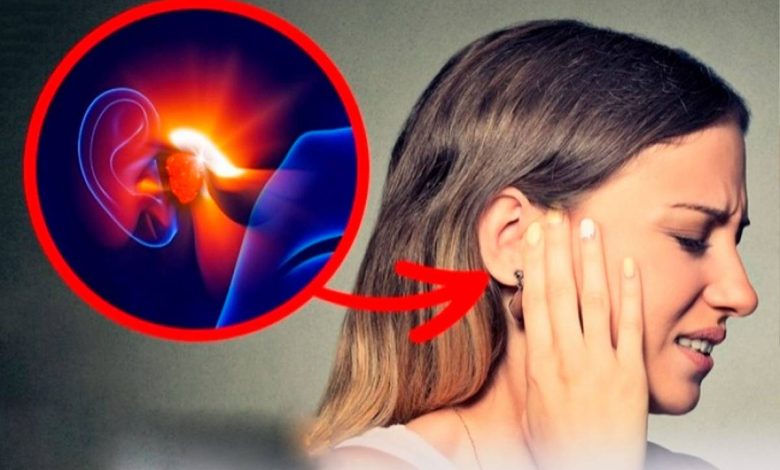Sensorineural hearing loss: What is this disease, the cause of the, symptoms, diagnostics, treatment, prevention

Sensorineural hearing loss is called impairment or hearing loss, the cause of which is the disruption of the inner ear or vestibulocochlear nerve. In mild deafness stage audibility threshold above normal 30-40 dB, in severe - on 60-70 dB. Raising the threshold of hearing at 90 dB called deafness.
Sensorineural hearing loss: the cause of the
The main cause of sensorineural hearing loss is a defect in the hair (sensory epithelial) cells of the spiral organ in the inner ear. Sometimes hearing loss can also be caused by disturbance of the auditory center of the brain, or the deterioration of conductivity vestibulocochlear nerve. Pathology Data can be acquired, that is, to develop as a result of craniocerebral injury, Infectious diseases or overwork hearing, and can be congenital.
The cause of congenital dysfunction of the auditory apparatus can serve as a mother transferred heavy infection (meningitis, cytomegalovirus infection, enable vetryanaya, эpidemicheskiy mumps, measles and the flu).
Besides, there are cases of hereditary sensorineural hearing loss. Gene, responsible for this pathology, inherited by disease type, because hereditary sensorineural hearing loss is more common in consanguineous marriages.
Symptoms of sensorineural hearing loss
Sensorineural hearing loss is characterized by hearing impairment. Deterioration can occur gradually, but often cases of sudden hearing loss. In some cases, the hearing loss may be accompanied by pain or noise in the ears. Besides, in different forms of the disease, hearing loss may be associated with promiscuity sounds, i.e, despite, that the patient can still hear the sounds, he can not identify them, unable to recognize human speech. Quite often, sensorineural hearing loss is accompanied by some vestibular disorders, for example, dizziness, nausea and vomiting.
Sensorineural hearing loss: diagnostics
The diagnosis of sensorineural hearing loss can be exposed to the ENT doctor on the basis of the research results of hearing. Usually studies are sound-conducting and sound-systems using kamertonalnoy sample and recording tone threshold audiogram. In some cases to more accurately determine the type of hearing loss is used in audiometry frequency range over 8 000 Hz.
Differential diagnosis should be done with a conductive hearing loss, which is caused by disorders of the middle ear and eardrum.
Sensorineural hearing loss: types of disease
There are two main types of sensorineural hearing loss - congenital and acquired. At the same time there is a classification of the disease according to the degree of hearing loss. In accordance with this classification is isolated 4 the degree of hearing loss:
- the first power - increase the threshold of audibility to 26-40 dB;
- second degree – to 41-55 dB;
- third degree - up 56-70 dB;
- fourth degree - up 71-90 dB.
According to this classification, raising the threshold of audibility to more than 90 dB is considered deafness.
There is also a division of a sudden sensorineural hearing loss (for a couple of hours of development), acute (within a few days of development) and chronic (long progressive).
Sensorineural hearing loss: patient actions
In identifying the symptoms of sensorineural hearing loss, namely a sharp or gradual hearing loss, accompanied by dizziness or nausea, it is recommended to consult a specialist and undergo a comprehensive hearing screening.
Treatment of sensorineural hearing loss
Treatment of sensorineural hearing loss is carried out in a specialized hospital. Driving and duration of treatment are determined individually for each patient. But, usually, common for all regimens is the use of drugs, improves blood flow to the inner ear. These are drugs, like pentoxifylline, vinpocetine or cerebrolizin.
Also in the treatment of this disease are widely used all sorts of non-drug methods - acupuncture, laserpuncture and hyperbaric oxygen therapy.
Besides, It is becoming increasingly common method for electrical stimulation of the auditory nerve by using a special electrode implanted into the cochlea.
Complications of sensorineural hearing loss
Untreated sensorineural hearing loss may lead to irreversible hearing loss and, Consequently, deafness.
Sensorineural hearing loss: prevention
As prophylaxis sensorineural hearing loss is recommended not to prolonged exposure to loud noise technogenic, avoid hearing overvoltage and mechanical damage to the ears and head. Considering that, that very often the cause of hearing loss are complications of viral infections, it is recommended not to start and the time to carry out the treatment of the primary disease. It is also advisable to avoid long-term administration of drugs with high ototoksichnostyu.
